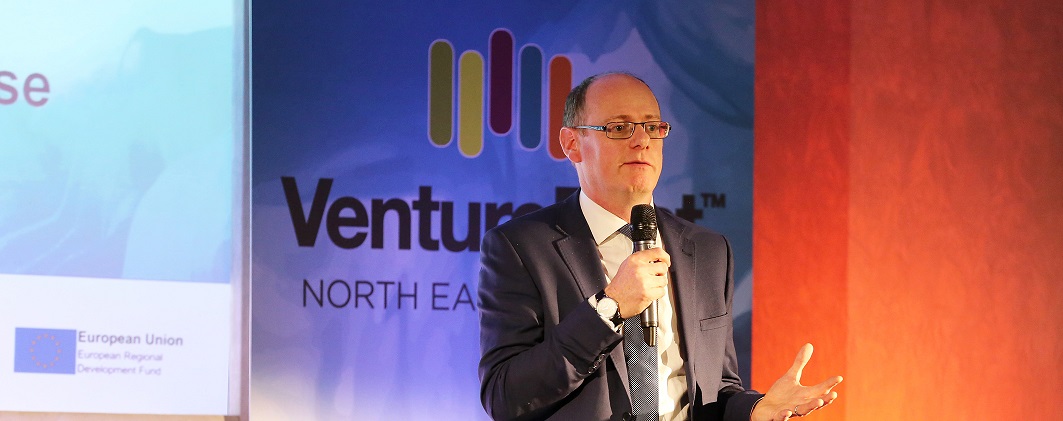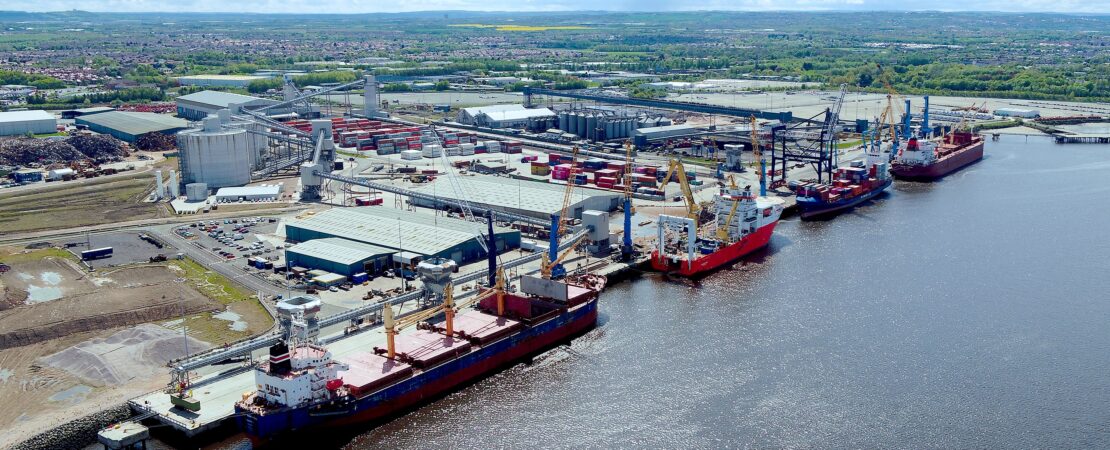An outstanding college business partnership in Ashington
When a college and local business share a common goal, they can build a special working relationship that achieves exceptional results. The close partnership between AkzoNobel and Northumberland College has developed a whole-college approach to high quality careers guidance and a successful pathway into local employment.
A global manufacturer of paints and coatings, AkzoNobel opened a new factory in Ashington five years ago. Despite its international profile, the company recognised its responsibility to tackle the local challenge of long-term high unemployment in rural Northumberland. It identified a strategic objective to enhance careers education and ensure a future local workforce.
The North East LEP played a key role in establishing and cultivating the partnership between AkzoNobel and Northumberland College. Enterprise Co-ordinator Lucy Johnson laid the groundwork with an understanding of the needs and ambitions of both organisations. This ensured a positive and sustained match. The LEP facilitated discussions, fostering a mutual understanding of each other’s agendas, terminology and organisational structures. All sides recognised the immense benefits of a whole-college approach, with the full support of Vice Principal Vikkie Morton and with AkzoNobel joining the board of governors.
This unique partnership gave Director of Student Services Ruth Magnus and AkzoNobel Enterprise Adviser Alex Wardle the autonomy and scope to deliver an ambitious strategic careers plan. Ruth introduced Alex to the college’s relevant curriculum departments and student communities. A whole-college approach, says Ruth, provides learners with the best guidance and employer encounters, “from their first course of study through to their next steps into employment, apprenticeships or higher education.”
Working closely with Curriculum Director Robert Stewart, they identified areas where AkzoNobel could make positive interventions. For example, AkzoNobel used its industry knowledge, technical expertise and focus on lean techniques to introduce practical problem solving methodologies and theories on personality types into pastoral lessons.
Alex is an enthusiastic and engaged Enterprise Adviser who has devoted time to thoroughly understand how the college works. This dedication has given AkzoNobel insight into how they can best add value in preparing students for the world of work. “The right frame of mind is key”, says Alex. Students need to be encouraged to start thinking early about their career progression and to understand the behaviours and attributes employers are looking for.
The college is piloting a Reward and Recognition Scheme to emphasise employability skills. Over the year, AkzoNobel will run three masterclasses for Engineering and Construction students. The college will award students with a certificate based on their attendance and progression, as well as volunteering in the community. This certificate will be recognised by AkzoNobel and guarantee them an interview, demonstrating their readiness for the world of work.
Alex expects this scheme to expand into other curriculum areas, and Ruth would like to see it replicated across the Education Partnership North East, building similar relationships between Sunderland College and Hartlepool Sixth Form and local employers.
AkzoNobel also supports the college with workshops, one-to-one sessions and mock interviews, as well as site visits and work experience placements. Last month, Northumberland College held a successful career fair for National Careers Week, where students learned more about opportunities with AkzoNobel and other local employers.
Alex is a driving force in the expanding and deepening cooperation between the college and local business. She has been instrumental in bringing more employers and colleges together through her work with the Enterprise Adviser Network. By working collaboratively across colleges, this group of advisers has been able to share and promote best practice.
AkzoNobel now has former college students working at its Ashington site and sees more leavers applying. The partnership also contributes to job satisfaction and wellbeing at AkzoNobel. “Going into college and delivering a masterclass is not part of the normal job,” explains Alex, but it has led to greater engagement in the team. For example, when a new operator came for an interview, he remembered the site manager from a college visit. “It’s lovely for the employees to know they can have an impact, even if it is a couple of years down the line.”
Ruth reports significant improvement in soft skills at the college, including attendance. In addition, students have a more positive attitude on campus and are more engaged with their studies. This strong performance has followed through into work experience, with fewer placements breaking down due to attendance or attitude. Employer feedback also shows greater satisfaction with students.
“Education feeds industry”, says Alex, and “it’s absolutely the right thing for business to support the college and in the past, we have let that relationship drift apart.” Ruth agrees: “Our courses need scrutiny from business to keep them relevant and up-to-date.” This engagement is essential to ensure students have the values and skills for a successful career. “It is necessary,” says Alex, “if businesses want to be sustainable, with a future ready workforce. It is the only answer.”



